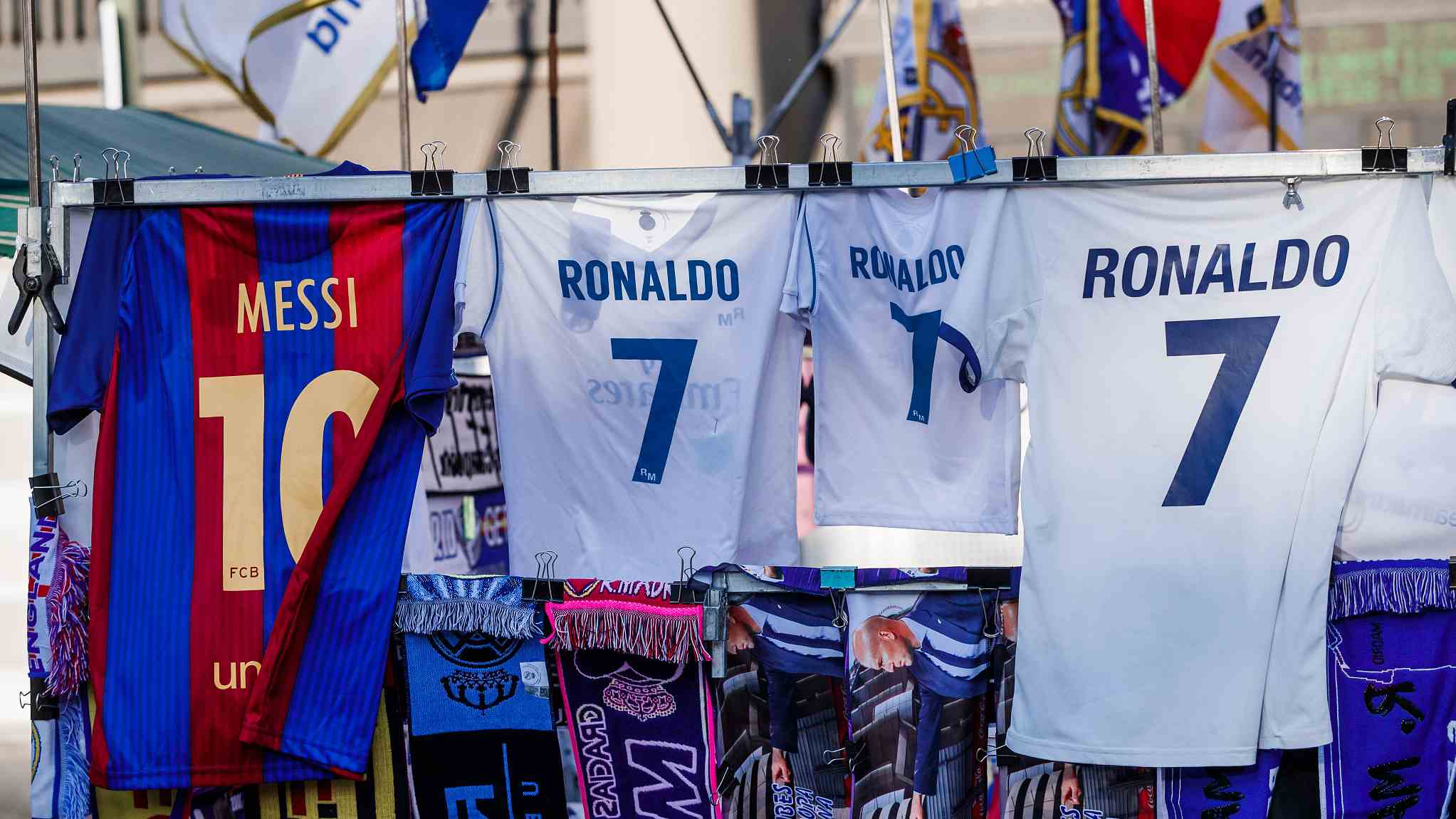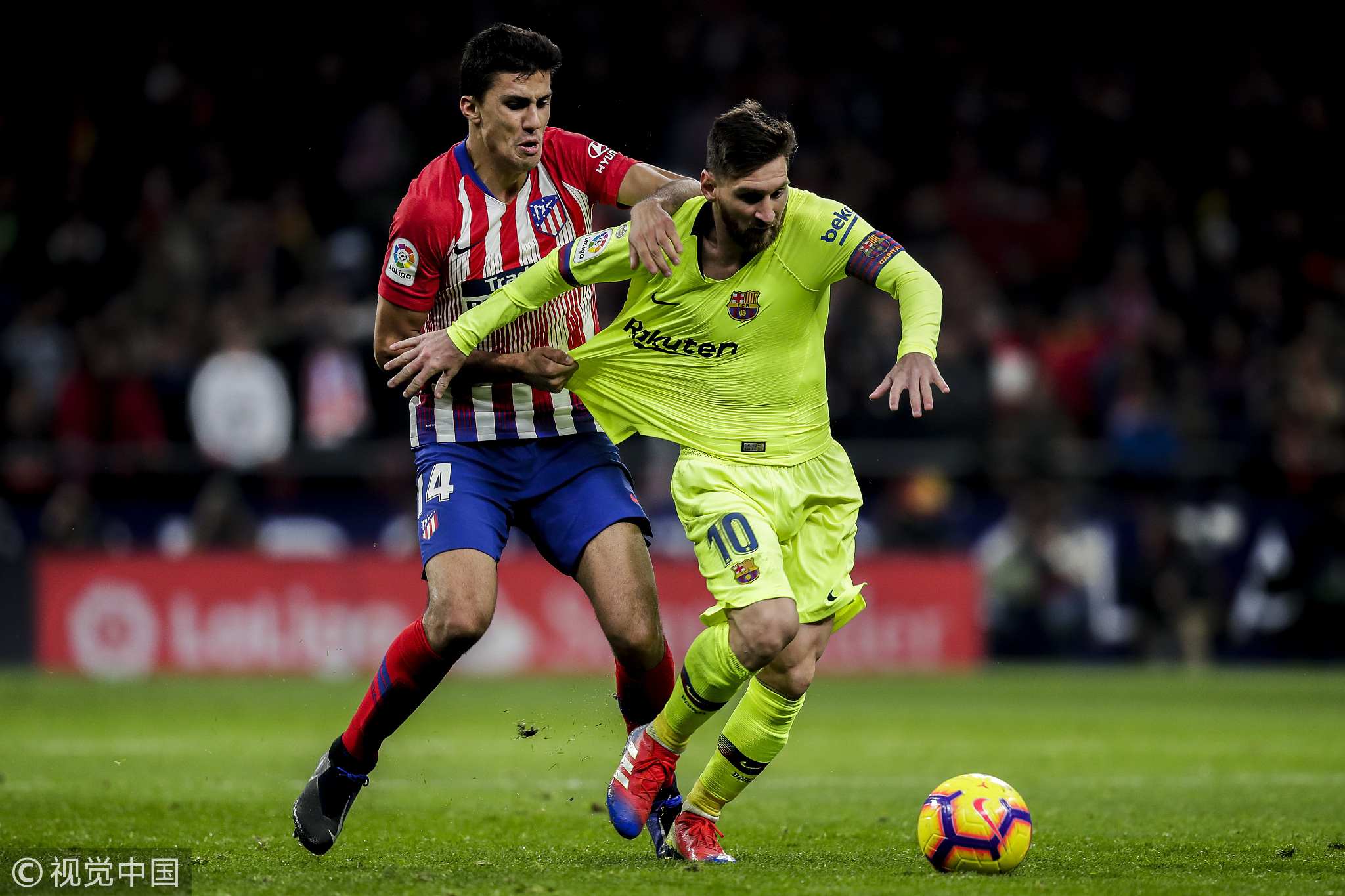
Sports
18:11, 27-Nov-2018
La Liga pursues 'hardcore' fans in China after Ronaldo's exit
Updated
18:02, 30-Nov-2018
CGTN

Spanish teams have generally reigned over English sides in European competition and now La Liga wants to harness that success to challenge the Premier League's supremacy in the lucrative China market.
European football leagues are vying for popularity in China, the world's second-biggest economy and home to a growing number of football fans among its 1.4-billion population.
There are no reliable overarching figures, but the English Premier League is undoubtedly the market leader, with La Liga, Germany's Bundesliga and Italy's Serie A in its wake.
However, Spain -- home to Lionel Messi at Barcelona and Champions League holders Real Madrid -- is chasing down the Premier League, said La Liga Greater China Managing Director Sergi Torrents.
"La Liga is catching up very fast and is in the second position over the other leagues here, especially because of the victories that the Spanish teams had in the last years in Europe," Torrents told AFP in Shanghai.
"Chinese fans -- like everywhere in the world -- are following the winners, and La Liga teams have been winning."

Lionel Messi (R) of Barcelona and Rodri of Atletico Madrid battles for the ball during the La Liga match between Atletico Madrid and Barcelona in Madrid, Spain, November 24, 2018. /VCG Photo
Lionel Messi (R) of Barcelona and Rodri of Atletico Madrid battles for the ball during the La Liga match between Atletico Madrid and Barcelona in Madrid, Spain, November 24, 2018. /VCG Photo
Sports marketing experts agree that -- thanks mostly to Barcelona and Real -- La Liga is comfortably second to the Premier League in China, albeit a distant way off.
Torrents declined to estimate the number of Spanish football fans in China, but on the Weibo platform, La Liga has about 1.6 million followers.
The Premier League's account has 3.6 million followers while the Chinese Super League has five million.
Torrents says that surveys and analysis of social media show that La Liga is particularly strong in the 16-30 age bracket.
He admits it is likely that La Liga lost followers to Serie A after Cristiano Ronaldo's 110-million-euro transfer from Real to Juventus in July.

Cristiano Ronaldo of Real Madrid celebrates his second goal during the UEFA Champions League match between Juventus and Real Madrid in Turin, Italy, April 3, 2018. /VCG Photo
Cristiano Ronaldo of Real Madrid celebrates his second goal during the UEFA Champions League match between Juventus and Real Madrid in Turin, Italy, April 3, 2018. /VCG Photo
"La Liga has created a brand and in five or six years this competition has grown a lot," he said.
La Liga was the first European football league to open an office in Beijing in 2014, said Torrents.
It added Shanghai in 2016, now the headquarters, and the Spanish league is pursuing "hardcore" followers.
One way it does that is through social media, to go with the staple of matches -- 12 regional stations in China show two free-to-air games a weekend. There is also live-streaming of matches.
Pre-season tours are another way to bring fans closer to their heroes, with Barcelona scheduled to visit China next summer.
La Liga does not divulge audience figures or how much it earns from media rights in China but will get 897 million euros (1.02 billion U.S. dollars) per season from overseas markets from 2019 to 2022 for rights.
China, along with the U.S., is La Liga's biggest overseas market, said Torrents.

A Spanish football coach tutors Chinese teenagers in Shenyang, China, August 2, 2018. /VCG Photo
A Spanish football coach tutors Chinese teenagers in Shenyang, China, August 2, 2018. /VCG Photo
La Liga is not just about taking from China's increasingly wealthy consumers, said Torrents.
For example, about 200 Spanish coaches have fanned out across China to teach football at schools.
Other European leagues and teams are similarly lending their expertise and many are opening or helping to run youth academies.
(Top photo: Shirts of Messi and Cristiano Ronaldo are seen during the La Liga match between Real Madrid and Getafe in Madrid, Spain, August 19, 2018. /VCG Photo)
Source(s): AFP

SITEMAP
Copyright © 2018 CGTN. Beijing ICP prepared NO.16065310-3
Copyright © 2018 CGTN. Beijing ICP prepared NO.16065310-3